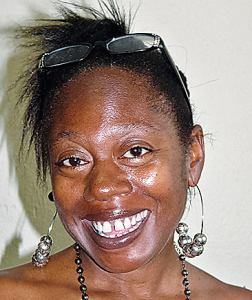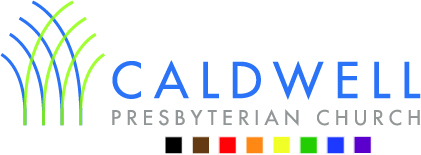Dear Caldwell,
Last night we celebrated communion and were fed by the Spirit – in bread and cup, in song and prayer, in scripture and sermon. We ended the evening on the front lawn as we draped the cross in black and I said the words, “Death does not get the last word.”
Today, as many continue with our prayer vigil, those words are sorely needed as reassurance. I learned just a few hours ago that our sister, Zoraida Stewart, was hit by a car while walking her beloved dog and very badly injured. She is recovering from several broken bones and lacerations but the nurses say there are no internal injuries. She could not communicate for several days because she had a breathing tube inserted so we just learned this. I am working with her family to let them know the situation.

Zoraida is in the ICU at Carolinas Medical-Main. However, the nurses hope she will be moved to a regular room tomorrow, when she can take visitors. As you know, the last several years have been very hard her as she has struggled with MS and other challenges. I assured her we all would hold her at the center of our prayers, in these days when we look into the darkness of the tomb and remember that it did not hold Christ. I will keep you updated and there will be ways to help in the coming days.
That is one of the best things Caldwell does – it simply loves people, in the name of Christ. This congregation looks to God’s grace in Christ and responds by energetically taking up the charge to be Christ’s hands and feet. In a nutshell, that is consistent with another understanding of atonement, which we have been considering this Holy Week.
This “theory of atonement,” called the Moral Influence theory, holds Christ’s life as an example for living. Christ’s work and purpose were to bring about positive moral change to humanity. God reconciles us to Godself in Christ to reveal God’s love and to change the hearts of sinners to want to do good in the world and repent of our sins.
As stated by French theologian and philosopher Peter Abelard (1079-1142), “love answers love” in this understanding of atonement. The work of Christ is rooted in God’s love for us as broken and imperfect beings.
As with all ideas about atonement, this one has pros and cons. Widely held as a favorite theory in the protestant “liberal” denominations, it informs our mission in the world to serve others. The hymn “When I Survey the Wondrous Cross” says it this way, “Were the whole realm of nature mine, that were a present far too small; love so amazing, so divine, demands my soul, my life, my all.”
Also, in the words of Hymn 257 in our Glory to God hymnal:
May we, Christ’s body, walk and serve and stand
with the oppressed in this and every land,
’til all are blessed and can a blessing be,
restored in Christ in true humanity.
Questions and cautions for this theory: It can diminish Christ’s divinity, making Christ just another person who set a good example, nothing more, as with Gandi or Dr. Martin Luther King Jr. Theologically speaking, then, we might ask why Christ was needed, given that the Bible is full of other fine examples of servants of God – Abraham, Moses, Elijah, Jeremiah, etc.
As we think about Christ on the cross on this Good Friday, a related question would be, “If Christ were just another mortal, why do we mark his crucifixion as pivotal, given that the Romans crucified thousands of people?” As important as any concern about this idea is that it risks understating the message of new life for all in Christ’s resurrection.
Combined with the other ideas we’ve reviewed this week, we all have more than enough to consider, meditate on and pray about as we hold vigil and prepare for the good news of Sunday morning.
Watch for Caldwell This Week soon with all the Easter details.
In Christ,
John
